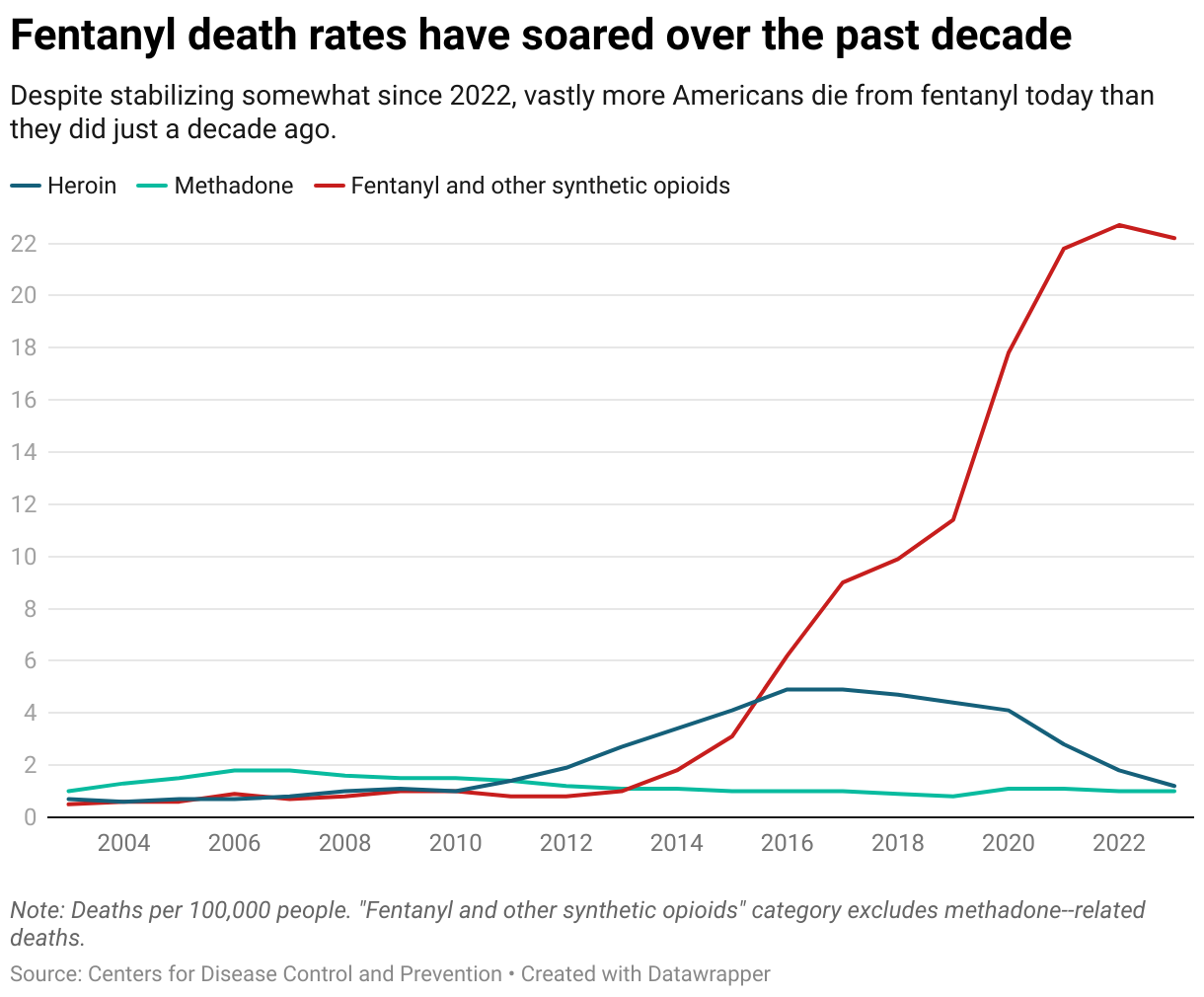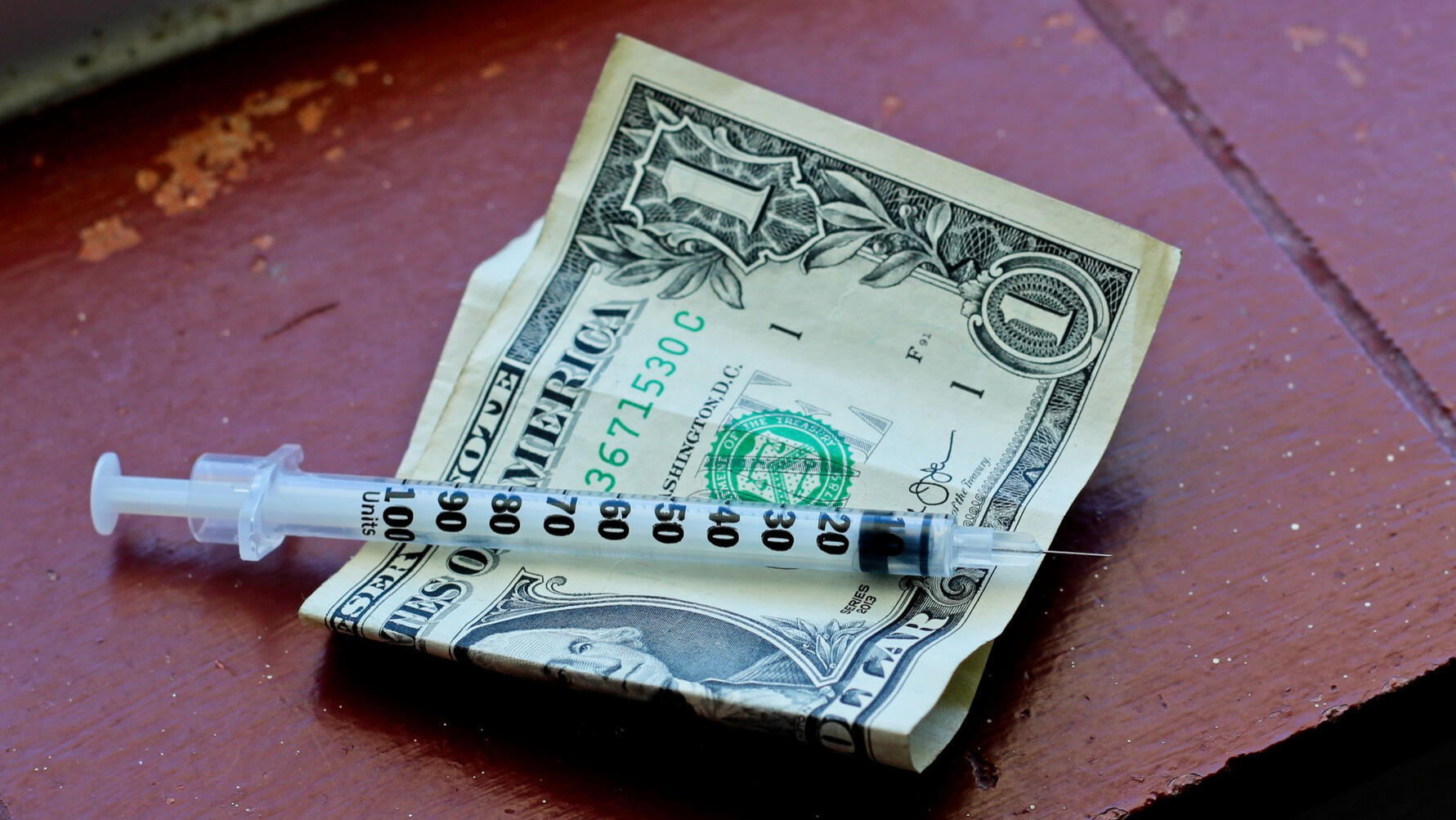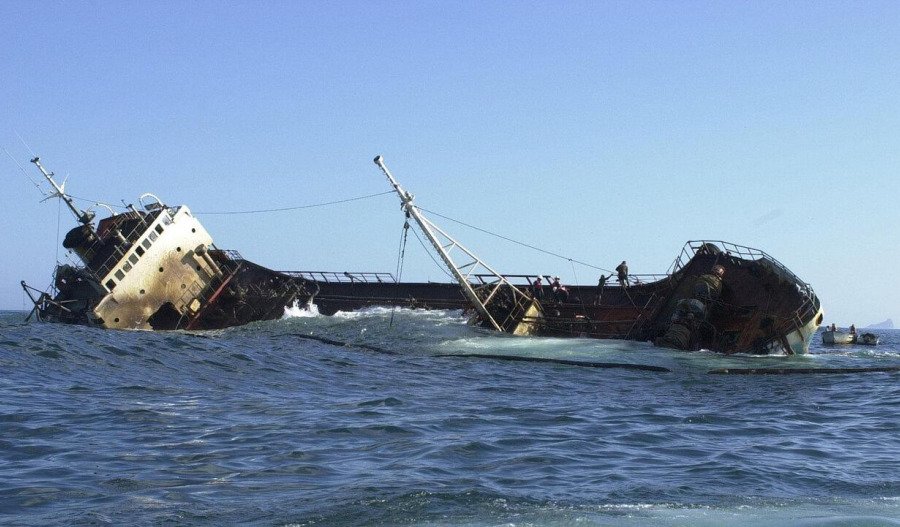Over the weekend United States President Donald Trump stayed true to his election campaign promise of imposing tariffs on Canada, Mexico and China, holding all three nations culpable for America’s increasing fentanyl deaths crisis.
The 47th President imposed the import tax through America's International Emergency Economic Powers Act (IEEPA), constituted by “the extraordinary threat posed by illegal aliens and drugs, including deadly fentanyl”.
U.S. allies Canada and Mexico have both been slapped with an additional 25% tariff on imports (excluding energy resources from Canada which have a reduced 10% tariff added) and a further 10% has been imposed on goods imported from China.
Trade accounts for 67% of Canada’s gross domestic product (GDP), 73% of Mexico’s GDP, and 37% of China’s GDP, yet only 24% of U.S. GDP.
Fentanyl blame game
The Trump government argues that China has “failed to take the actions necessary to stem the flow of precursor chemicals to known criminal cartels and shut down money laundering by transnational criminal organisations.”
While Mexico has “afforded safe havens for the cartels to engage in the manufacturing and transportation of dangerous narcotics, which collectively have led to the overdose deaths of hundreds of thousands of American victims”.
Canada, suffering from its own fentanyl epidemic which accounted for 79% of opioid deaths in the first six months of 2024, received a tariff increase for its domestic production of the drug due to a “growing presence of Mexican cartels operating fentanyl and nitazene synthesis labs”.
“Previous administrations failed to fully leverage America’s economic position as a tool to secure our borders against illegal migration and combat the scourge of fentanyl, preferring to let problems fester,” the White House said in a statement.
“Last fiscal year, Customs and Border Protection (CBP) apprehended more than 21,000 pounds of fentanyl at our borders, enough fentanyl to kill more than 4 billion people."
Statistics from the U.S. Center for Disease Control show fentanyl was responsible for almost 70% of America's ~107,000 drug-related deaths in 2023, although those 74,702 deaths had eased compared to the 76,226 synthetic opioid deaths estimated in 2022.

The move comes as no surprise though after Trump addressed the world’s government and business leaders via video link to the 2025 World Economic Forum meeting in Davos recently:
“Come make your product in America and we will give you among the lowest taxes among any nation on Earth.
“We’re bringing them down very substantially… but if you don’t make your products in America, which is your prerogative, then very simply you will have to pay a tariff.”
Bloomberg economists have estimated that the tariffs will be inflationary to the U.S., impacting over 40% of US imports and ~5% of GDP, lifting the effective average tariff rate from ~3% to almost 11%.
Its analysts reckon the tariffs could lower America's GDP forecast by 1.2% and add 0.7% to inflation with retaliatory measures from China, Mexico and Canada.
Retaliation
Canada has already announced plans to put 25% tariffs on some US$255 billion worth of U.S. goods; while Mexico says it's planning its own countermeasures and China says it will file a lawsuit against America through the World Trade Organisation.
“China’s position is firm and consistent. Trade and tariff wars have no winners. The U.S.’s unilateral tariff hikes severely violate WTO rules. This move cannot solve the U.S.'s problems at home and more importantly, does not benefit either side, still less the world,” The CCP's Ministry of Foreign Affairs said in a statement yesterday.
Mexico's President Claudia Sheinbaum took to X to respond to the tariffs and its perceived role in America's drug crisis:
“If the United States government and its agencies wanted to address the serious consumption of fentanyl in their country, they could, for example, combat the sale of narcotics on the streets of their main cities, which they do not do, and the money laundering generated by this illegal activity that has done so much harm to their population,” Sheinbaum posted.
“I instruct the Secretary of Economy to implement Plan B that we have been working on, which includes tariff and non-tariff measures in defence of Mexico's interests.”
These responses could cause yet another escalation in the trade war. ANZ Research said in a note this morning that Trump's executive order included clauses to further increase tariffs if the countries responded in kind.
“[Even if the tariffs were to remain in place as announced indefinitely, they would represent an enormous negative shock for the Canadian and Mexican economies, for which activity related to U.S. exports, accounts for 14% and 16% of GDP respectively.”
Australia's response
Concerns about how these deals will affect Australian trade with all four countries are at the top of Australian officials' minds as the consistent fallout of the ongoing US-China geopolitical spat leaves Australia exposed to its closest ally and its largest trading partner.
The Australian Financial Review reported that Trade Minister Don Farrell is seeking talks with America “as soon as is humanly possible” with a plan to be “cool, calm and collected”.
And speaking with the ABC, Foreign Minister Penny Wong said that we shouldn't be surprised by the tariff announcements.
“In my engagements while I was in Washington for the inauguration, including with my counterpart, Secretary Rubio and other members of the Trump administration, I made very clear where Australia sits,” she told the ABC.
“We are a country with whom the US has a trade surplus and all goods enter from the US, under our free trade agreement, enter Australia without duties or tariffs or any other barriers.”



